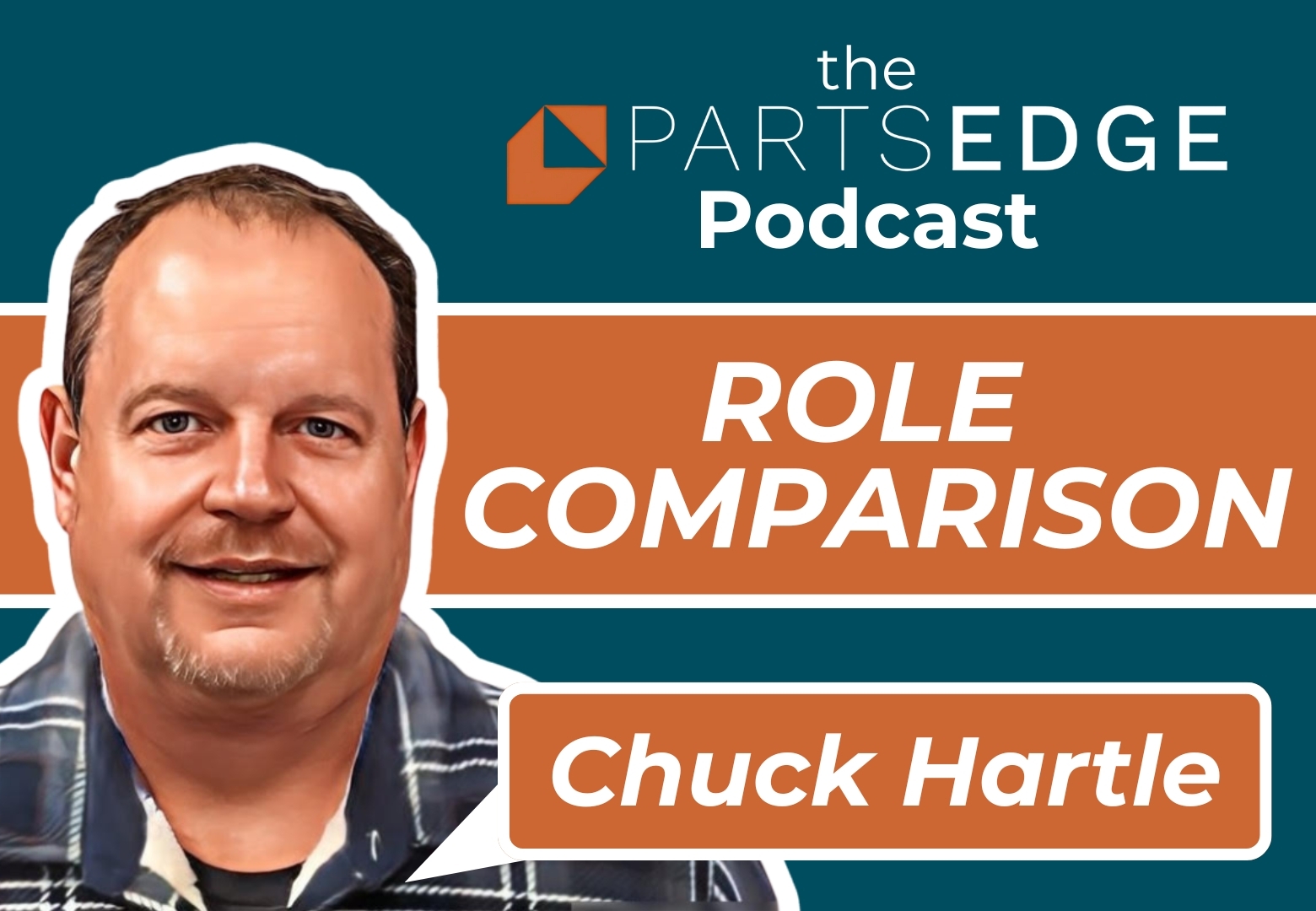Chuck Hartle – The Critical Role of Parts Managers

Role Comparison: Parts Managers vs. Sales Managers
When comparing the roles of parts managers and sales managers, several similarities emerge. Both roles are crucial for a dealership’s asset management. However, there are distinctive elements that set them apart.
Sales managers primarily handle the buying and selling of used cars, which are significant dealership assets. Unlike new cars, used cars are not subject to flooring costs. Consequently, sales managers live by the mantra, "Your first loss is your best loss." They aim to move any car that sits for more than 60 days.
In contrast, parts managers deal with thousands of part numbers, not just a handful of used cars. Their responsibility revolves around ensuring that the ordering process aligns with inventory needs. The challenge exponentially increases when dealing with various part numbers. In this environment, the mantra should be "efficient stock management prevents financial loss."
Unique Challenges Faced by Parts Managers
To understand the pressures faced by parts managers, one must look at inventory control. Parts managers often grapple with automatic stock replenishment programs such as Aero and Rim. These programs may restrict the ability to stock preferred inventory levels.
Moreover, manufacturers often guarantee a small portion of the inventory. As Hartle points out, only about 25% to 30% of inventory is manufacturer-guaranteed. The remaining 70% becomes idle capital, posing significant risks. Parts managers, thus, need to find methods to control and purge obsolescence efficiently.
This intensive inventory management contrasts starkly with a sales manager’s role. Sales managers have more autonomy over their stock choices, especially when purchasing at auctions or evaluating trade-ins.
The Importance of Accurate Stock Management
A critical aspect of a parts manager’s success stems from accurate stock management. Unlike the sales department, which can offload old stock relatively easily, parts managers are tied to what their manufacturers decide. Therefore, they must be vigilant about what goes on their shelves.
Overstocking or incorrect stock can lead to financial stagnation. Parts that remain unsold become ‘boat anchors,’ immobilizing potential profits. The key to overcoming this problem is strategic planning and forward thinking.
Further, parts managers must constantly coordinate with the service department. This ensures they only order necessary parts. Misalignment in this coordination can lead to surplus stock, which is hard to move.
The Myths Surrounding Manufacturer Guarantees
One of the most significant misconceptions in parts management is reliance on manufacturer guarantees. Many erroneously believe that manufacturers guarantee most of the inventory, leading to complacency. However, as discussed, only a fraction is manufacturer-guaranteed.
This myth can lead to disastrous levels of obsolescence. Therefore, managers should educate themselves on what percentage of their stock is genuinely guaranteed. They should actively work to mitigate unused parts sitting on shelves. By having the right mindset and strategy, they can ensure they are not burdened by excess inventory.
Conclusion
In conclusion, the role of a parts manager is multi-faceted and carries immense responsibility. Managing thousands of parts, ensuring efficient stock levels, and coordinating diligently with the service department are no small tasks. The myths of manufacturer guarantees further complicate their responsibilities.
Just like sales managers, parts managers also significantly impact dealership profitability. The importance of efficient parts management cannot be overstated. It’s a complex, vital job requiring forward-thinking, strategic planning, and constant vigilance. With the right approach and dedication, parts managers ensure the smooth operation of dealerships, contributing substantially to overall profitability.
——————————————–
Listen to the full episode now!
https://spotifycreators-web.app.link/e/m5roQnl94Ub

Submit a Comment
Your email address will not be published. Required fields are marked *